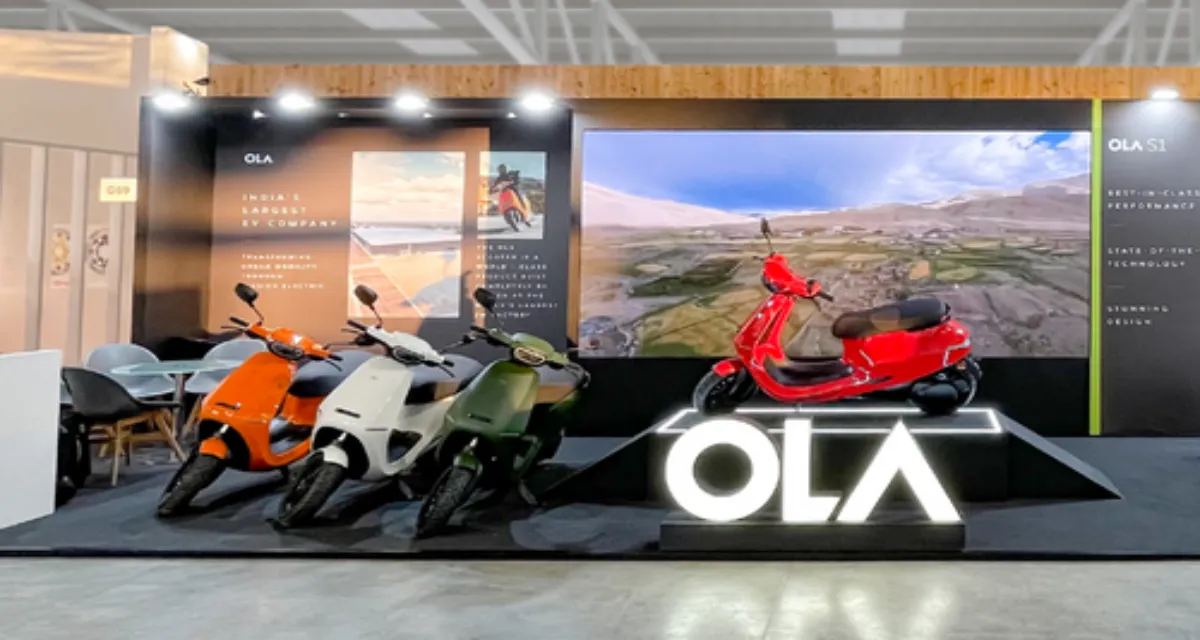

Electric cars in India may not leap forward as expected but apparently, Indians are seem to be more attracted to Electric Scooters. Following the trend, Ola, a prominent brand in Scooters backed by Softbank has halted its production of manufacturing of Electric cara for the time being. The company's founder, Bhavish Aggarwal, initially announced in 2022 that Ola would introduce an electric sports car with an all-glass roof capable of reaching 100 kilometers per hour in just four seconds. The plan was to initially be a reality within two years of its announcement.
Even as recently as September 2023, Aggarwal reaffirmed Ola's plans for the electric car during an interview with Forbes. However, two insiders have revealed that these plans are now on hold. This decision comes just before Ola's planned Initial Public Offering (IPO) in August, through which the company aims to raise around $660 million.
The primary reason for this shift in focus is Ola's decision to concentrate more on the two-wheeler market, particularly its electric scooters. According to one source, the company believes that mass electrification of cars in India is still a long way off due to the lack of necessary charging infrastructure. This infrastructure gap presents a significant hurdle for the widespread adoption of electric cars in the country.
In contrast to electric cars, electric scooters have gained significant traction in India over recent years. The infrastructure to support e-scooters has developed rapidly, helping boost their popularity. In the first half of this year alone, around 483,000 electric scooters were sold in India. On the other hand, electric car sales during the same period were much lower, at approximately 45,000 units. This disparity highlights the faster growth and acceptance of e-scooters compared to electric cars in the Indian market.
Ola's focus on electric scooters has proven to be a strategic move. Despite the company still operating at a loss, it has managed to capture a substantial 46% market share in the e-scooter segment within just three years of its founding. This growth has come despite challenges such as the reduction of government incentives for the industry by Prime Minister Narendra Modi's administration last year. These incentives had previously helped drive sales and adoption of electric vehicles.
Ola Electric's upcoming IPO is expected to be one of the largest in India this year. The funds raised through the IPO will likely be used to further strengthen its position in the electric two-wheeler market and possibly expand its product offerings in this segment. The decision to put the electric car project on hold suggests that the company is keen on consolidating its gains in the scooter market before venturing into the more complex and challenging car market.
The suspension of the electric car project also underscores the broader challenges facing the electric vehicle (EV) industry in India. While there is significant interest and potential for growth in the EV space, several factors impede rapid development. The lack of a robust and widespread charging infrastructure is one of the most critical barriers. Without adequate charging stations, the convenience and practicality of using electric cars diminish significantly, making potential buyers hesitant.
Moreover, the Indian market for electric cars is still in its nascent stages, with limited models and options available to consumers. Companies like Tata Motors have started making strides in this space, but the overall ecosystem is not yet mature. For a company like Ola, which is still relatively new and building its presence, diving into the electric car market could be a risky and resource-intensive endeavor.
In Summary, Ola Electric's decision to pause its electric car plans and focus on its electric scooter business reflects a strategic adjustment based on current market realities and infrastructure limitations in India. By concentrating on the two-wheeler market, Ola aims to build on its existing success and strengthen its market position. The upcoming IPO will be a crucial step in this journey, providing the company with the necessary capital to fuel its growth and innovation in the electric mobility sector. As the landscape of electric vehicles in India evolves, Ola's adaptability and focus on core strengths may well prove to be its key to long-term success.
Also Read: